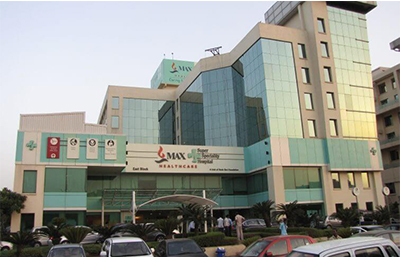Cervical cancer is considered as the fourth most common cancer in the women. According to a report of 2012 (for which the information is available), 528,000 new cases were diagnosed with cervical cancer. It was also estimated that about 266,000 deaths occurred worldwide due to cervical cancer
Cervical cancer begins in the cells that line the cervix which is located in the lower part of your womb. The cervix connects the womb (uterus) to the vagina. In any cancer, the cells grow abnormally losing its control. Often, cervical cancer can be prevented by undergoing regular screening tests. If the cancer is diagnosed earlier, it can be effectively treated offering a high quality of life.
Causes
Most of the cervical cancers are caused due to human papillomavirus (HPV) infections. But, most people who are diagnosed with HPV infection may not develop cancer. There are different types of HPVs and only specific HPV cause cervical cancers, and other types may lead to skin or genital warts.
A change in the structure of deoxyribonucleic acid (DNA) present in the human cell is called mutation which leads to cancer. This mutation alters the control of cell growth leading to cancer. The cancer cells in the cervix break off from the tumor and spread to other parts of the body causing metastatic cancer.
Types of Cervical Cancer
- Squamous cell carcinoma: It affects the outer lining of the cervix. Approximately 80 to 90 percent of the cervical cancers are squamous cell carcinomas
- Adenocarcinoma It may develop in the mucus secreting glands located in the outer part of the cervix.
Symptoms
In the early stages of cervical cancer, you may not experience any symptoms. The advanced cervical cancer symptoms include:
- Vaginal bleeding
- Water, bloody vaginal discharge
- Pelvic pain
Risk Factors
- Sexually transmitted diseases (STDs): If you are diagnosed with other STDs such as chlamydia, gonorrhea, syphilis and HIV/AIDS increases the risk of HPV infection which ultimately leads to cervical cancer.
- Smoking: Women who smoke are two times at increased risk of developing cancer when compared to those who do not smoke. The tobacco damages your DNA of the cervix cells and may result in cervical cancer.
- Poor Nutrition: An intake of diet that is low in fruits and vegetables may increase your risk for cervical cancer.
- Long-term use of oral contraceptives: Several research studies reveals that the risk of cervical cancer is doubled if you excessively use the oral contraceptives.
- Overweight: Being overweight or obese may lead to adenocarcinoma.
- Family history of cancer: The genetic predisposition may increase the risk of cervical cancer.
Diagnosis
Screening Tets: Cervical cancers are prevented with certain screening tests which include:
- Pap Test: During the procedure, your doctor may scrape and brush the cervix cells and then check outs for abnormalities
- HPV Dna Test: The test involves examining the cervix cells for any HPV infection
Diagnostic tests: If your doctor suspects cervical cancer, then you may need to undergo any of the following tests:
- Punch Biopsy: The diagnostic procedure involves identifying cancer by collecting a small tissue from the cervix.
- Endocervical curettageThe endocervical curettage uses a small, spoon-shaped instrument to scrape the tissue from the cervix.
Cervical Cancer Treatment in India
If the cervical cancer is diagnosed in the early stages, it can be treated effectively. The type of cervical cancer treatment in India varies on the stage of cancer. The standard treatment for cervical cancer includes the following:
- Surgery:doctor may recommend a surgery depending on how advanced is your cancer. The types of surgeries include:
- Cryotherapy: The cryotherapy involves the destruction of abnormal cervical cells by freezing.
- Laser ablation: A surgical laser is used to remove the cancerous tissue.
- Cone Biopsy: The cone biopsy involves removing of cone-shaped part of the cervix.
- Hysterectomy: The hysterectomy involves removal of cervix and uterus
- Radiation Therapy: The radiation therapy uses high-energy beams that destroy the cancer cells. Radiation therapy can be given externally or internally.
- Chemotherapy: It t involves certain medications such as bevacizumab to treat cervical cancer. The chemotherapy is given in cycles for specific period. Other drugs used to treat cervical cancer include blenoxane, hycamtin, and platinol.
Cervical Cancer Treatment Hospital in India
When it comes to treating cervical cancer, it is important to choose a reputable hospital with a team of experienced healthcare professionals. In India, there are several top-rated hospitals that specialize in treating cervical cancer, including:
- AIIMS in Delhi
- Tata Memorial Hospital in Mumbai
- Christian Medical College in Vellore
- Kidwai Memorial Institute of Oncology in Bengaluru
These hospitals are equipped with state-of-the-art facilities and technology, and have teams of highly skilled doctors, nurses, and other healthcare professionals who are dedicated to providing the best possible care for cervical cancer patients.
Cervical Cancer Treatment Cost in India
The cost of cervical cancer treatment in India can vary depending on a number of factors, including the stage of the cancer, the type of treatment required, and the hospital where the treatment is being performed. On average, the cost of cervical cancer treatment in India can range from around Rs. 50,000 to Rs. 3,00,000 or more.
Cervical cancer is a major health concern for women in India, but with early detection and proper treatment, the prognosis for cervical cancer patients can be quite good. There are many reputable hospitals in India that specialize in treating cervical cancer, and the cost of treatment can vary depending on a number of factors. It is essential that you consult with a healthcare professional to determine the best course of treatment for your individual case.









